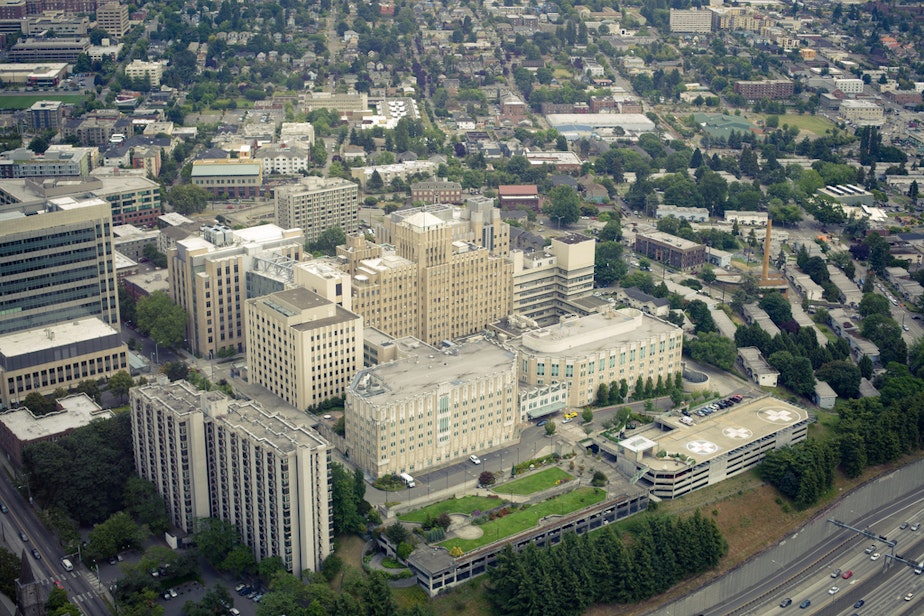New Program At Harborview Works Toward Universal PTSD Screening

Re-experiencing, avoidance, hyperarousal: these are the three categories of post-traumatic stress disorder as laid out by the National Institute of Mental Health. They commonly go by more common names: nightmares, flashbacks, anxiety, social isolation, poor concentration, insomnia and startling.Dr. Doug Zatzick, a professor of psychiatry at the University of Washington who also works with PTSD patients at Harborview Medical Center, said the disorder sometimes presents as a mindset: Patients stop thinking about the future or making future plans.
ProPublica reports that of the 21 top-level trauma centers in the country, only one, at the Interim LSU Public Hospital in New Orleans, has universal screening program for PTSD.
Zatzick is trying to change that.
He is part of a new program at Harborview to identify people who are at the greatest risk for developing PTSD. Though still in its implementation phase, the program uses an electronic medical record with an automated screen that cues questions. "It saves a lot of time," he said.
Real-World Function
Implementing PTSD screening comprises a social justice issue, according to Zatzick. “If you really look at what America’s trauma centers are doing, it’s the folks that are most disadvantaged that are coming in time and time again.”
Zatzick said people who live in low-income communities, where there may be a lot of violence, or people who are undocumented or first-generation immigrants get their care from trauma centers like Harborview. They may be more likely to experience events that can trigger PTSD, like rape, violence, car accidents or war.
Those who suffer from PTSD often have difficulties with everyday tasks – like climbing stairs, Zatzick said.
“Many of our studies have shown that the symptoms of PTSD and depression – even after you account for the severity of the injury – are associated with real-world function; whether it’s returning to work after an injury, or just getting along with your friends and family, or physical function,” he said. "PTSD, anxiety, depression after a traumatic life event is not just about individual suffering."
Past Mandates
The Harborview program that Zatzick is involved with has taken inspiration from other models to push for universal PTSD screening at trauma centers.
“Surgeons are ‘make it happen’ folks,” he said. “Over the past 10-15 years, with alcohol screening and intervention at trauma centers, we’ve managed to move beyond clinical practice guideline recommendations to actual mandates.”
The American College of Surgeons has mandated that universal alcohol screening and intervention must take place at trauma centers. Every three years, the centers are inspected and there are big consequences for those that don’t comply, including a loss of funding or accreditation. According to Zatzick, losing accreditation with the American College of Surgeons could mean a loss of federal funding as well.
“That’s where we would like to get to with PTSD [screening],” he said.
There are still issues around payment, though. As with the alcohol screening, insurance companies may not pick up the tab for interventions. Zatzick said that as the alcohol mandate stands, trauma centers must complete the screening protocol even without a payer on hand for treatment.
Produced for the Web by Kara McDermott.


